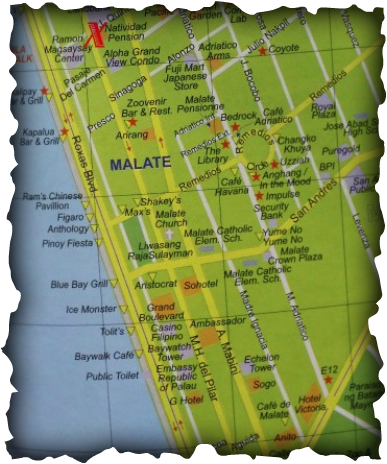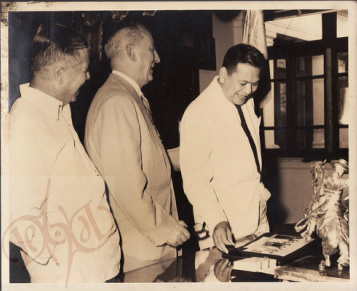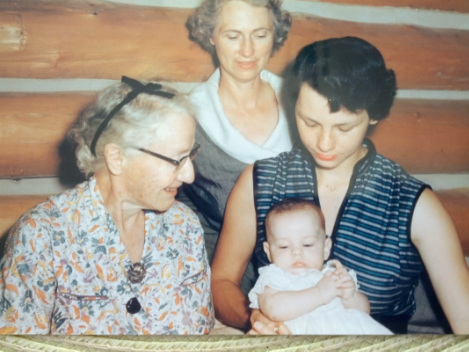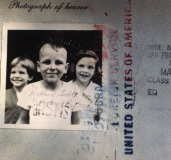I have these dreams. I live and breathe under water like light green air. Or: our country is occupied. The enemy, hidden, is everywhere. We are resistance fighters who hide underground, moving and fighting. We live with the terror that we might be seen. Or: I have learned to fly, a highly technical skill that I learn in a series of dreams. It is a secret I hide.
As far back as I know, I have been white. Passing through the yard, they say, "ay manika!" (doll) and pinch our cheeks. Manika: fragile, pretty, pale, precious. By sixth grade, I am not manika enough, too clumsy, my nose was too high, a whiteness too bright like neon signs in Quiapo, Paco, everywhere. I
We grew up in limbo. Home, a American family island in the Philippine Sea. The world teemed with queasy odors and sweet aromas, Tagalog puns, wind, sun and music wilder than the middle American life of my grandmother's house. I learned how to be Filipina and that I was not; knew my U.S. passport's privilege but didn't know how to be one. My sisters and I were ex-manikas, "white monkeys," Manila girls in a world pummeled by typhoons, wildcat strikes, student riots, and then, in 1971, curfewed nights.
I live with the name, white monkey. It's the curse for white fright, colonial blight, American might.
There are fish adrift in their aquariums with whom I have more in common than some friends. I live under water again, open my mouth to unshaped sound. No one knows that I am utterly alien, that our world is occupied. No one knows this because I can't speak the language. I can't escape, though I can fly. And no one understands me when I speak. Neither do I.




 RSS Feed
RSS Feed
